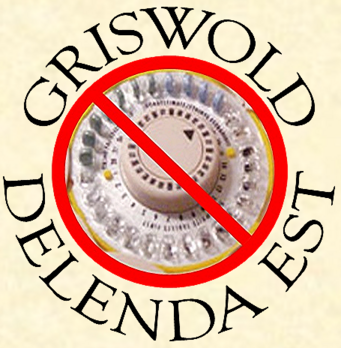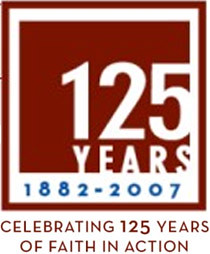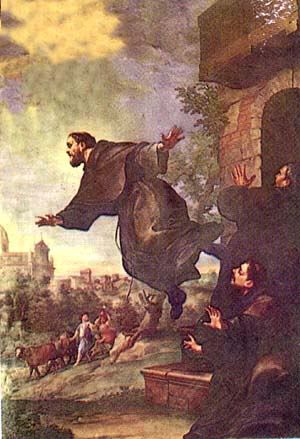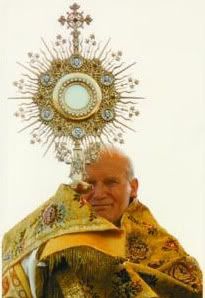How Old Is Your Church?
How Old is Your Church?
If you are a member of Calvary Chapel, Chuck Smith began your congregation in Costa Mesa, California in 1975.
If you are a believer at the Vineyard Christian Fellowship, your denomination was started by Ken Guillickson and Keith Green in Santa Monica, California in 1974.
If you are a follower of the Church of Scientology, your group owes its origin to science-fiction author L. Ron Hubbard in Washington D. C. in 1952.
If you are a worshipper at the Iglesia ni Cristo, Felix Manalo instituted your sect in the Philippines in 1914.
If you belong to one of the religious organizations known as "Church of the Nazarene", "Pentecostal Gospel", "Holiness Church", "Pilgrim Holiness Church", your denomination is one of the many thousands of new sects and religions founded by men within the past several hundred years.
If you are a Christian Scientist, you look to 1879 as the year in which your religion was born and to Mrs. Mary Baker Eddy as its founder.
If you are a Jehovah's Witness, your religion was invented by "Pastor" Charles Taze Russell in 1874, incorporated 1881.
If you worship with the Salvation Army, your sect began with William Booth in London in 1865.
If you are a Seventh Day Adventist, Mrs. Ellen Gould White inaugurated your group in the United States in 1860.
If you are LDS or "Mormon" (Church of Jesus Christ of Latter-day Saints), Joseph Smith Jr. started your religion in Palmyra, NY, in 1829.
If you are a Methodist, your denomination was launched by John and Charles Wesley in England in 1744.
If you are a Protestant Episcopalian, your denomination was an offshoot of the Church of England founded by Samuel Seabury in the American colonies in the 17th century.
If you call yourself a Mennonite, your movement was named after Menno Simons, a Catholic priest for 12 years, who left the Church to join the conservative Anabaptist wing.
The Amish, started by Jacob Amman around 1693, are just one of many different church bodies within the Mennonite community in the U.S.
If you are of the Dutch Reformed church, you recognize Michaelis Jones as founder, because he originated your denomination in New York in 1628.
If you are a Baptist, you owe the tenets of your denomination to John Smyth, who launched it in Amsterdam in 1605.
If you are a Congregationalist, your denomination was originated by Robert Browne in Holland in 1582.
If you are a Presbyterian, your denomination was founded by John Knox in Scotland in the year 1560.
If you belong to the Church of England, your denomination was founded by King Henry VIII in the year 1534 because the Pope could not grant him an annulment from his true and lawful wife, Catherine of Aragon, with the right to re-marry.
If you are a Lutheran, your denomination was founded by Martin Luther, an ex-monk of the Catholic Church, in the year 1517.
If you are Eastern Orthodox, your church was taken from the Catholic Church in 1054 when the Pope and an Eastern Patriarch excommunicated each other.
If you are a Roman Catholic, you know that your Church was founded in A.D. 33 by Jesus Christ, the Son of God.
File Under: Catholic_Stuff, History








5 Comments:
Just look at the various encyclopedic entries on religion, the Eastern Orthodox church seems to be defined as the oldest church in Christianity, founded in 33 A.D.
The Eastern Orthodox Chruch is also refered to as the Holy Catholic Church You are refereing to the "Roman Catholic" church under the Bishop of rome, which was founded AFTER most of the main Orthodox churches.
The events of 1054 did not "establish" the Church in the East, which was already 1000 years old, by any definition.
As far as the Eastern Orthodox Church being "taken," this is a strange and biased assertion.
What happened was that various popes (and even ones current Catholic historians call "ani-Popes") moved the Papacy in Rome into the political sphere causing them to break from the "Church Universal" to which Orthodoxy remained faithful. Many Roman Catholic "traditions" were insituted at that time eg unleavened bread, unmarried priests (which is the cause of a huge problem) etc. The Roman Catholic Church once had the same beliefs and traditions as the Church Universal/Orhodoxy. their priests married until they split off fromt he Orthodox. They used to fast on wednesday and Friday like the Orthodox, but do not today. etc etc.
From the point of view of the early Church Fathers, the Church in Rome would be the first "Protestant" Church.
so plese do not confuse "Roman Catholic", which arose out of the assertion of infallablityof the pope some 1,000 AFTER the fouding of Christianity, with "Catholic Chruch" which refers to cannonical Churches, which of course includes the Orthodox.
Kyle, I am very sorry that your bloggdigger search for the word "patriarch" led you to this post, which evidently caused you some degree of distress.
Here's a hint: If you hold the views you seem to hold, you're probably not going to find what you're looking for on a page that has its title in Latin. At the very least, you're not going to win friends or converts among those who write or regularly read such pages.
Sigh...Sts. Cyril and Methodius, pray for us.
Few Protestants today are educated enough to recognize this (and hence they make no claim to historical legitimacy), but a Protestant worth his salt traces his faith back to Jesus Christ. We believe that our faith is the most faithful (note: not "only true" but "most faithful") to the Scriptures and undiluted traditions of the church, which they believe the Roman Catholic Church had obscured by the time of the obvious corruption of the 16th century. Hence, some Protestants refer to themselves as "Protesting Catholics:" we believe in one, holy, universal apostolic church, but we are bound by conscience to protest against abuses by one of the denominations claiming that mantle (i.e., the RCC). I, for one, welcome fellowship with Roman Catholics as fellow Christians, but I am convinced by tradition and Scripture that there is a more faithful way of church life. Protestants do appeal to tradition; the Reformation was in this sense quite conservative. The Church Fathers, the Apostolic Fathers, Augustine, Anselm, Bernard of Clairvaux, and even Aquinas and Erasmus, are heroes and tradition-bearers of the little-C catholic Christian faith.
Otherwise, thanks for the post.
I am this close to swearing off all future attempts at humor.
Otherwise, it's nice to "meet" you, Evan. I've heard a lot of good things about you.
Sorry to be humorless :) ... I have met too many Catholics who insist with all seriousness on this line of reasoning, so you'll have to forgive me if I didn't get it at first.
That, or I'm just dense...
Post a Comment
<< Home